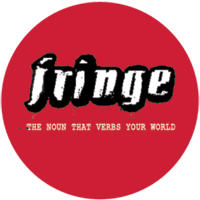
Danzy Senna subtitles her
latest book,
Where Did You Sleep Last Night?, as a "personal history" rather than a memoir. The difference between the two terms is subtle but important--the book is as much a chronicle of her ancestors and a racially-divided world as it is a story of her own life.
Outwardly, the book hinges on the relationship between Senna's parents: Fannie Howe, a writer from the prominent white Boston upper-crust, and Carl Senna, a black intellectual from fuzzy Southern origins. The unlikely couple married in 1968, full of hope and revolutionary zeal, only to divorce in 1975, their union a victim of alcoholism, domestic abuse, and the social pressures of an inter-racial marriage on the heels of the Civil Rights Movement. More significant, however, is the relationship between Senna and her father. At the book's core is the author's dogged search for information regarding her father's roots--an often exhausting and heart-wrenching search that propels her on a journey through the South.
I found myself completely wrapped in the tangled threads of Senna's family history, eager for her to solve the mystery of her heritage. However, there was something keeping me from becoming completely involved in the story--something in her tone that's always bothered me. Senna was a visiting writer where I attended college and I took a creative writing seminar with her my last semester of senior year. I don't remember much about her--only about the writing prompts she gave us, the circles we would form for peer review. I think it's because she never seemed fully present or fully invested in our development as writers. Something about her kept us at a distance, even when we were surrounding her at a long table.
Given that I had taken a writing course with her, I read the book on multiple levels. On one of those levels, I wondered if her multi-racial identity grants her writing an authenticity and depth that would be somehow lacking in my own. All of her books (two novels and this memoir) focus on this idea of racial duality--of the constant struggle for identity when there isn't just one constant. But what does it mean when you're just...white?
While reading the book, I couldn't help feeling like without some element of another ethnicity to add dimension and significance to our experience, we racially plain people are one-dimensional, flat, without substance. There is an underlying tone of scorn for her mother's side of the family, described at one point as "a crowd of screaming red Irish faces, or a room of tight-lipped dismissive Wasps who assume their own significance and wit and intelligence as if they were still central, despite the evidence to the contrary." It was frustrating to feel like our ethnicity alone defines us and how we feel, see, and think about the world around us. Perhaps this is because my experiences have never hinged on my race--a luxury I certainly don't take for granted; however, I would like to believe that it is the totality of our life experiences that define us--not just our DNA.






